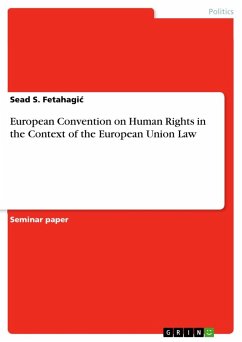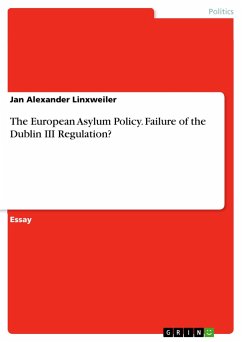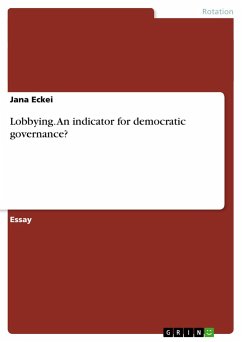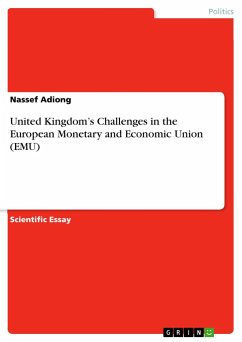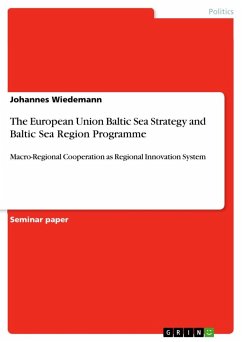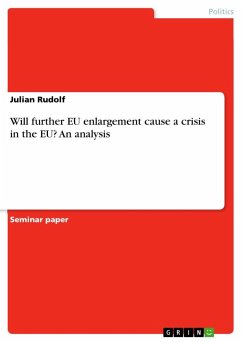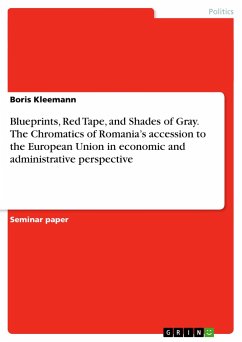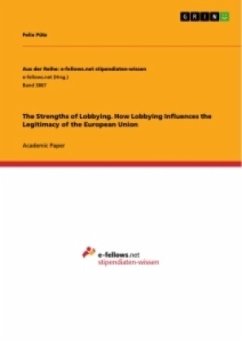
The Strengths of Lobbying. How Lobbying Influences the Legitimacy of the European Union

PAYBACK Punkte
0 °P sammeln!
Academic Paper from the year 2020 in the subject Politics - International Politics - Topic: European Union, grade: 1,0, Maastricht University, language: English, abstract: Over the past 20 years, the number of lobbyists in Brussels increased rapidly. The Lisbon treaty of 2009 reinforced this effect drastically as EU institutions became more powerful. Consequently, there was a shift in the lobbying strategy of many interest groups increasingly focusing on EU decision makers instead of state governments. In 2017, approximately 15,000 lobbyists were positioned in Brussels. The rising trend of lob...
Academic Paper from the year 2020 in the subject Politics - International Politics - Topic: European Union, grade: 1,0, Maastricht University, language: English, abstract: Over the past 20 years, the number of lobbyists in Brussels increased rapidly. The Lisbon treaty of 2009 reinforced this effect drastically as EU institutions became more powerful. Consequently, there was a shift in the lobbying strategy of many interest groups increasingly focusing on EU decision makers instead of state governments. In 2017, approximately 15,000 lobbyists were positioned in Brussels. The rising trend of lobbying in the EU has several effects on policy and decision making of EU institutions. The European Union finds itself in a challenging position due to the rise of eurosceptic parties, problems with European integration, the economic crisis, and the overall concern about the democratic legitimacy of the EU.Legitimacy as a concept describes the rightfulness of a government in terms of either doing the right thing in the right way with the right people or in terms of political sciences as the overall belief of society in the rightness of the system. The legitimacy of the EU is debatable, and lobbying is on a rising trend. Therefore, this paper addresses the following research question: Does lobbying facilitates or impedes EU's legitimacy?Firstly, the paper focuses on the definitions of the key concepts and links them to the EU. Secondly, responsible lobbying will be discussed. Additionally, the paper will investigate the relationship between lobbying in the EU and legitimacy more in depth, by using the author's own framework, while considering several dimensions and scales of lobbying and by citing multiple examples. Lastly, a conclusion will be given.





